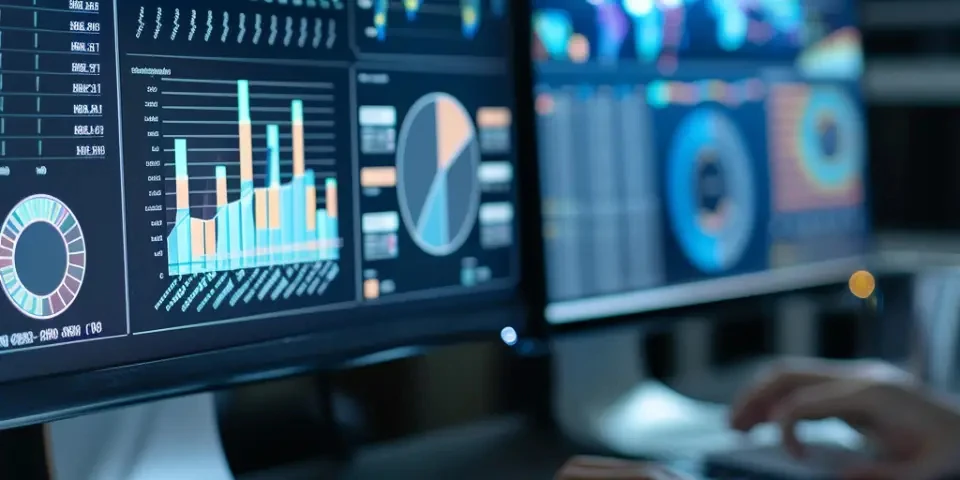The AI Job Market How Artificial Intelligence is Changing the Workforce
Artificial Intelligence (AI) is revolutionizing the job market, bringing forth significant changes in the way businesses operate and the skills needed by professionals. As AI technologies continue to evolve, they are transforming industries and reshaping the workforce across various sectors. Here are some key aspects highlighting the impact of AI on the job market:
1. Automation and Job Displacement
AI-powered automation is taking over repetitive and routine tasks, leading to job displacement in certain fields. Industries such as manufacturing, customer service, and data entry are witnessing a decrease in traditional job opportunities.

However, new job roles are emerging to oversee and maintain AI systems, ensuring their efficiency and minimizing potential risks. Professionals with skills in AI programming, machine learning, and data analysis are in high demand.
2. Augmentation of Human Abilities
While some fear that AI will replace humans in the workforce, AI technology is also augmenting human abilities and enabling professionals to be more productive and efficient. AI-powered tools can assist with data analysis, decision-making, and problem-solving, allowing workers to focus on higher-level tasks and strategic thinking.
As AI becomes more prevalent, professionals need to adapt and learn how to leverage these technologies effectively to enhance their job performance.
3. Increased Demand in AI-related Jobs
The rise of AI has created a surge in demand for professionals with AI-related skills. Jobs such as data scientists, AI researchers, machine learning engineers, and AI ethicists are becoming increasingly sought after.
Universities and online education platforms have responded to this demand by offering specialized programs and courses in AI, ensuring individuals have the necessary skills to enter the AI job market.
4. Ethical Considerations and AI Governance
As AI technologies continue to advance, ethical considerations and AI governance become essential. Questions arise regarding data privacy, biases in algorithms, and the potential impact of AI on society.
To address these concerns, organizations are hiring AI ethicists and creating policies to ensure responsible AI development and usage. The AI job market is witnessing a rise in roles related to AI ethics, governance, and regulation.
5. AI-enabled Decision Support Systems
AI is transforming decision-making processes by providing valuable insights and recommendations to professionals. Decision support systems powered by AI algorithms can analyze immense amounts of data and assist in strategic planning, risk assessment, and forecasting.
Professionals with domain expertise, coupled with AI proficiency, can make better-informed decisions and gain a competitive edge in their respective fields.
6. AI in Healthcare
The healthcare industry is embracing AI technologies to improve patient care, diagnostics, and drug development. AI-powered medical imaging systems can assist radiologists in identifying anomalies and enhancing accuracy.
Furthermore, AI algorithms can analyze patient data for personalized treatment plans and disease prediction. The increasing adoption of AI in healthcare is creating new job opportunities for healthcare professionals with AI knowledge.
7. AI and Cybersecurity
As AI evolves, cybersecurity threats also become more sophisticated. However, AI can be used as a defense mechanism against cyberattacks. AI algorithms can identify unusual patterns in network traffic, detect anomalies in system behavior, and proactively respond to cyber threats.
The demand for cybersecurity professionals with AI expertise is on the rise to combat the growing complexity of cyber threats.
8. Impact on Traditional Education
AI is reshaping the education sector by enabling personalized learning experiences. AI-powered tutoring systems can adapt to individual student needs, providing tailored content and feedback.
Additionally, AI chatbots are being used to assist students in answering queries and providing guidance. This integration of AI in education requires educators to acquire new skills and adapt their teaching methodologies to effectively incorporate AI technologies into the classroom.
9. Social and Economic Impact
The widespread adoption of AI has the potential to impact the global workforce and economic landscape. While AI brings numerous benefits, it also raises concerns about job displacement and income inequality.
It becomes crucial for policymakers to address these challenges by implementing retraining programs, fostering entrepreneurship, and considering policies that ensure a fair distribution of AI-generated wealth.
10. Collaboration between Humans and AI
Contrary to the belief that AI will completely replace humans, the future of work lies in collaboration between humans and AI systems. Humans possess creativity, empathy, and critical thinking skills that AI lacks.
Jobs that require social interaction, emotional intelligence, and complex problem-solving will continue to require human intervention, while AI systems assist in handling repetitive tasks and data processing.
Frequently Asked Questions:
- Will AI eliminate jobs?
- Which industries are most affected by AI?
- What skills are in demand in the AI job market?
While AI may lead to the displacement of certain jobs, new roles will emerge to manage and maintain AI systems.
Industries such as manufacturing, customer service, and data entry are experiencing significant changes due to AI-driven automation.
Professionals with skills in AI programming, machine learning, data analysis, and AI ethics are highly sought after.
References:
- Gartner. "How Artificial Intelligence Will Impact Jobs." www.gartner.com
- World Economic Forum. "The Future of Jobs Report 2020." www.weforum.org
- McKinsey Global Institute. "Jobs Lost, Jobs Gained: Workforce Transitions in a Time of Automation." www.mckinsey.com
